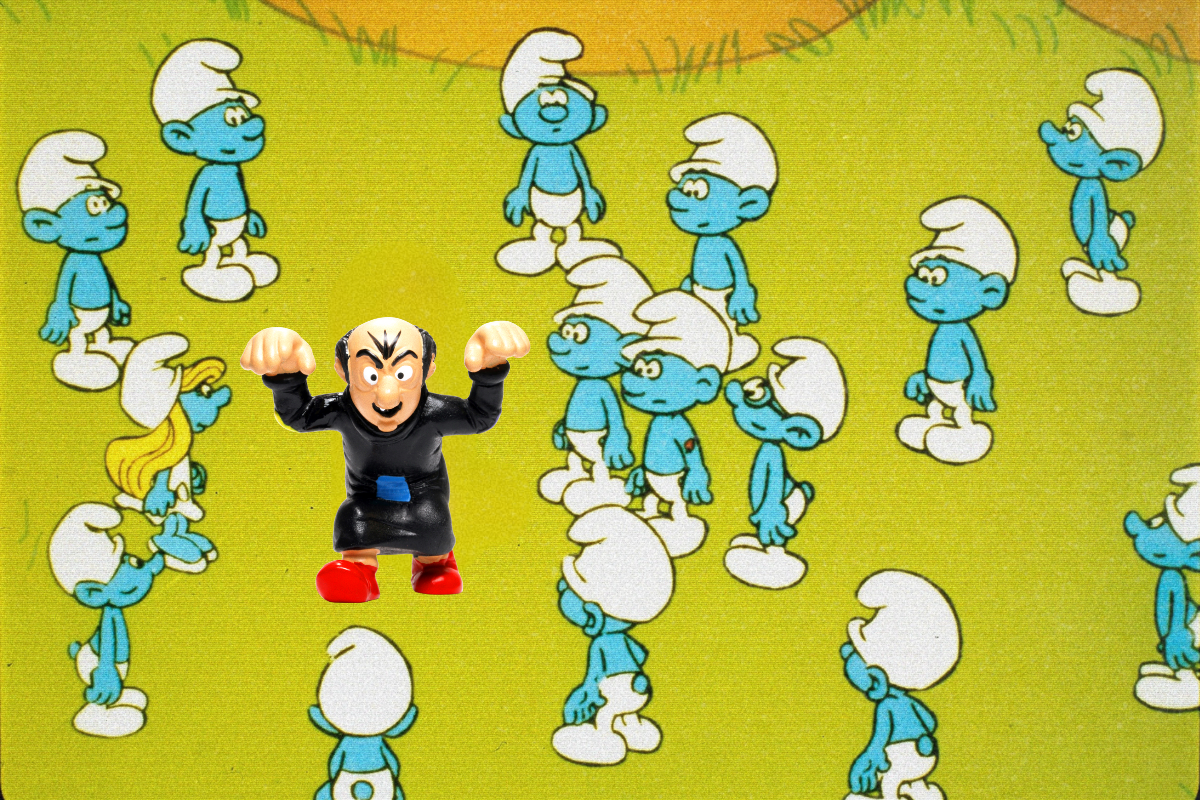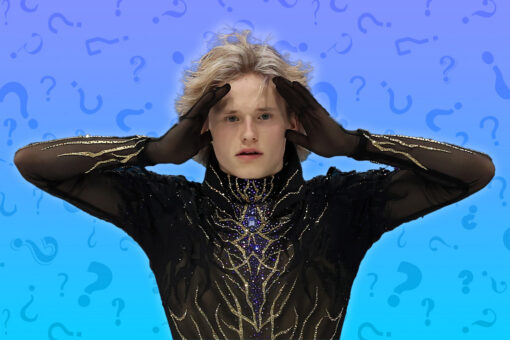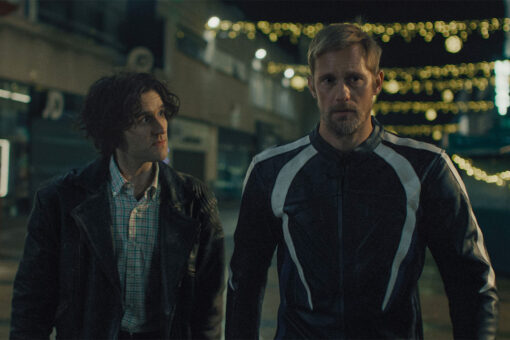An evil person desires to murder innocent children to use their blood for a sinister ritual.
That premise could describe two seemingly very different things: the classic antisemitic trope of blood libel… and the ongoing plot of a beloved kids franchise.
People have loved Belgian comic artist Peyo’s “The Smurfs” since their creation in 1958. The drawings have spawned various TV series, films, toys and three theme parks — and have generated several billion dollars in revenue.
If you’ve been out of touch with the Smurf universe, here’s a quick recap of the important details: Each gnome-like blue creature’s name reflects their distinctive personality or career — think Clumsy, Brainy and Vanity Smurf or Baker, Narrator and Farmer Smurfs. Having arrived by stork, they live in the magically protected Smurf Village; humans can only enter if a Smurf shows the way. Their unique language involves using the word ‘smurf’ as a verb, noun, adjective and more to convey various meanings.
And finally: The evil wizard Gargamel is their main foe. He’s the only “dark cloud” that ruins their smurf-tastic lives, the opposite of what’s “good and blue and cute in the world.” What Haman is to Queen Esther and Mordecai, he is to the Smurfs — so much so that the telling of Smurfette’s origin story in “The Smurfs 2” evokes a Purim spiel. When the Smurfs hear how Gargamel created her out of clay like a golem to be his instrument of evil, they boo and blare loud instruments at the sound of his name.
While Gargamel’s actions certainly validate their hatred, something about his portrayal made me uneasy after rewatching the more recent films. (I had to prepare for the upcoming Rihanna-led Smurfs movie!) Does this number-one enemy-of-the-state echo centuries of anti-Jewish propaganda? Is “The Smurfs” antisemitic?
This question has been asked before. In 2011, French sociologist Antoine Buéno published “The Little Blue Book: A critical and political analysis of the Smurf society,” arguing that the franchise contains racist and antisemitic tropes. The reaction? Primarily outrage and mockery in the media and among fans. Peyo’s own son allegedly deemed the accusation “between the grotesque and the not serious.”
Is he right? Or might he be a little defensive?
The world clearly wasn’t ready to discuss the darker themes in the Smurfs content then. But are we ready now to uproot our childhood nostalgia, at a time when politically influential people like Elon Musk regularly spread antisemitic conspiracy theories and the President of the United States refers to bankers as “Shylocks,” casually dropping an age-old antisemitic slur that feeds into tropes about Jews being greedy?
Maybe “The Smurfs” is all it claims to be: a sweet story to watch with your family on a rainy Saturday afternoon. I mean, despite the frequent sexualization of Smurfette and dick jokes.
But there’s plenty of evidence that, at the very least, the creator may have inadvertently injected his own biases into the lore and that the charge of Jewish stereotyping holds weight.
Gargamel is basically a caricature of Ashkenazi Jewish stereotypes: dark hair, prominent eyebrows close together, hunched over, vaguely Eastern European accent and most importantly, a crooked, cartoonishly large nose that seems central to his character. In the modern live-action movies, camera angles and jokes purposely accentuate Jewish actor Hank Azaria’s large prosthetic nose. In “The Lost Village,” the Smurfs even attach a life raft to the animated Gargamel’s large nose to save him from drowning. And the latest film’s trailer introduces us to his brother Razamel — who seems more evil with an even bigger nose — reinforcing the troubling trope that a schnoz of a certain size equals a very unsmurfy villain.
Depicted as a grotesque outsider, Gargamel also very much embodies the antisemitic trope of Jews as inherently dirty and diseased. He pees in a restaurant’s dining room, a swarm of flies busts him out from prison and drops him in a pile of trash and his secret lair’s only exit runs through a sewer. When Sofía Vergara’s Odile meets him in the 2011 Smurf film, she even mispronounces his name as Garbage Smell.
Beyond his physical characteristics, Gargamel also possesses all of the negative personality traits attributed to Jews: He’s exploitative, selfish, greedy and conniving, and he’s constantly scheming ways to become the most powerful wizard in the world.
In the earlier cartoons, he tries to transform the Smurfs into gold, which feels plucked straight from a bad South Park joke about money-hungry Jews. In the newer films, Gargamel’s quest for global domination neatly mirrors the blood libel accusations that fueled centuries of pogroms. Jews were horrifically and falsely accused of trying to murder innocent Christian children to bake their blood into matzah; Gargamel creates various torture-like devices to extract the blue Smurf essence to brew into magical potions that make him stronger.
And if all that wasn’t enough to convince you of Gargamel’s hidden “Jewishness,” his sidekick cat named Azrael has a smurfin’ Hebrew name that means “helped by God.” Oy!
So should we boycott the new movie and throw the entire Smurfs franchise away? Is everyone associated with “The Smurfs” complicit in perpetuating antisemitism?
In my opinion, no. The upcoming film even has a sizable Jewish cast — including Dan Levy, Natasha Lyonne, Nick Kroll and Billie Lourd — so who knows? They might infuse the franchise with much-needed Jewish joy!
But we do need to have more honest, bigger-picture discussions about what our entertainment normalizes and how it shapes our understanding of the world around us.
While viewers may not consciously think “Wow, this character looks Jewish!” and then leap to “And that must mean all Jews are bad news!”, we should ask: Why do facial features that deviate from cultural beauty standards make characters more nefarious? And how does this association affect the way we treat people in real life, whether intentionally or not?
Pop culture directly impacts people’s lives, and media representation has always been used to justify discrimination and oppression. In that context, more thoughtful, nuanced storytelling and less outdated stereotypes are desperately needed.
Ultimately, our society needs to address far more important factors contributing to the spread of antisemitism than this particular kids franchise. But I’m going to keep pushing for people to hold all art to a higher standard, and if that makes me a party pooper, well, Smurf it.



